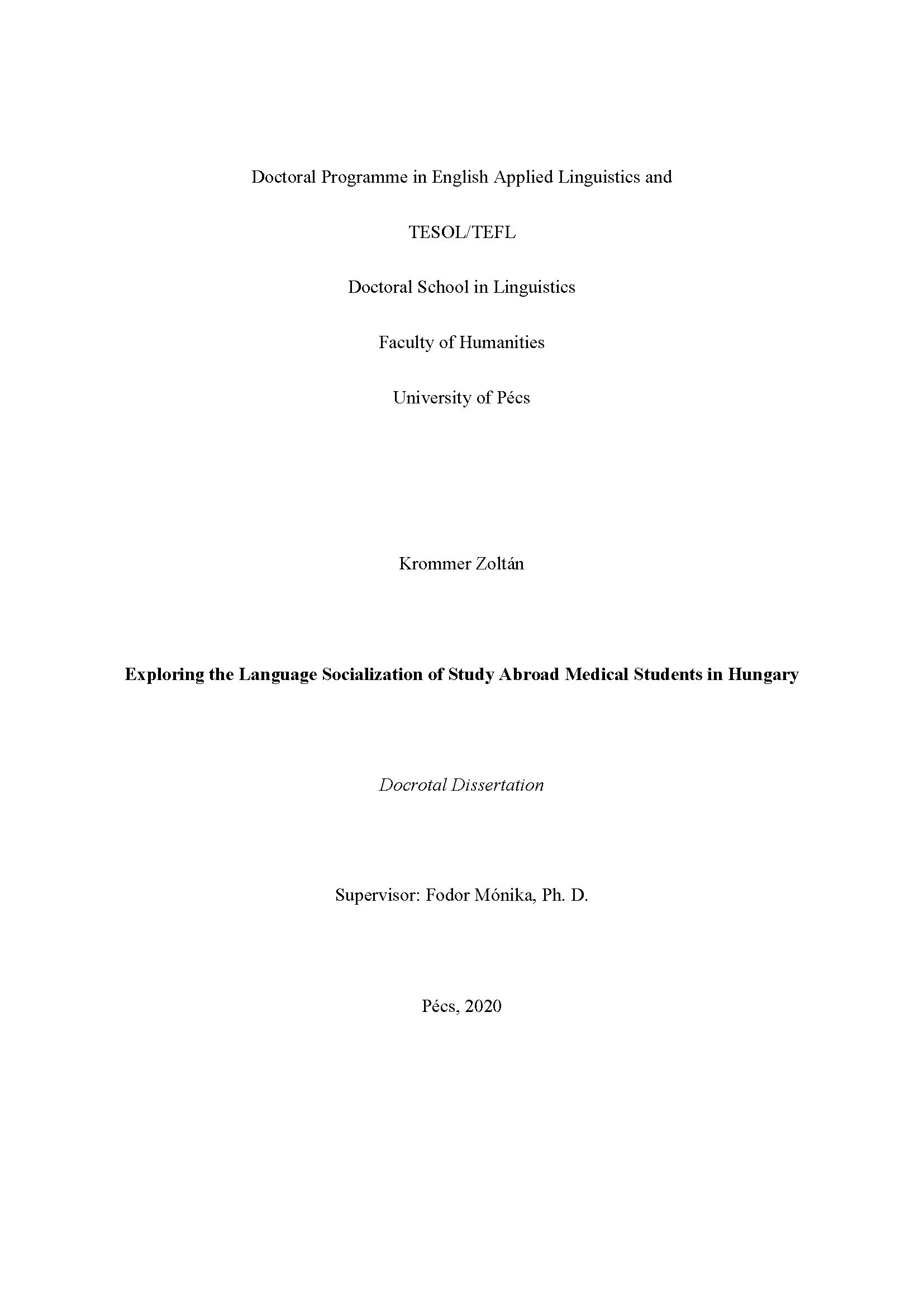Exploring the Language Socialization of Study Abroad Medical Students in Hungary
Abstract
In the present study, I explore the identity construction of study abroad medical students at the
University of Pécs Medical School through the coding and qualitative content analysis of
written accounts and interview data. I aim to understand the factors leading to or prohibiting
students from developing multiplex social networks during their sojourn. 133 first- and secondyear medical students submitted written accounts of their experiences, and five study abroad
medical students were interviewed for the research.
I collected the written data in February of 2019. The participants were asked to provide
a story detailing their experience as a study abroad student in Pécs. After two coding cycles, I
identified five aspects of identity construction namely SELF-EVALUATION, EVALUATION
OF THE SA CONTEXT, ADJUSTING TO THE SA CONTEXT, SOCIAL NETWORKS, and
COMMUNICATION; and their connection with the participants’ language socialization.
The semi-structured interviews took place in February of 2020. I designed the interview
questions based on the aspects of identity construction identified in the written data the previous
year. After transcribing and coding the interview data, I analysed the interviews keeping in
mind the aspects of identity construction, and focusing on the topics of identity, agency, and
the development of social networks. The analysis revealed that international medical students
in Pécs seemed to consider their study abroad experience to be a time of personal change and
identity construction. The accounts pointed to a limited interest in the host culture and members
of the host community. The written accounts suggested that study abroad medical students in
Pécs rarely manage to build social networks that contain members of the host community. The
five interviewees’ identities rarely led to seeking out access to members of the host community.
Despite their beliefs of the study abroad being a time of personal growth and learning, and
despite the proclaimed language learner identities of some of them, most interviewees did not
exercise their agency over their Hungarian language learning or over constructing social6
networks that involve Hungarians. The only exception was an Uyghur student, who found a
meaningful historical connection between his identity as an ethnic minority and the host culture.
His case demonstrated how an investment in the host culture, identity construction, and agency
over language learning can lead to legitimate participation in a Hungarian-speaking community
of practice and regular, meaningful Hungarian input.

